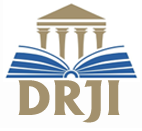MANAJEMEN SEKOLAH RAMAH ANAK DI SEKOLAH ALAM BIREUEN (SABIR)
Abstract
Keywords
Full Text:
PDFReferences
Alfina, N. (2021). Manajemen Sekolah Ramah Anak PAUD Inklusi. Jurnal Al-Tanzim: Jurnal Manajemen Pendidikan Islam, 5(1), 23–33. https://doi.org/10.33650/al-tanzim.v5i1.975
Gemnafle, M., & Batlolona, J. R. (2021). Manajemen Pembelajaran. Jurnal Pendidikan Profesi Guru Indonesia (Jppgi), 1(1), 28–42. https://doi.org/10.30598/jppgivol1issue1page28-42
Hamdi, H. (2020). Penerapan Fungsi Manajemen Pada Kantor Kelurahan Rantau Kiwa Kecamatan Tapin Utara Kabupaten Tapin. Jurnal Ilmiah Ekonomi Bisnis, 6(2), 155–163. https://doi.org/10.35972/jieb.v6i2.332
Hamdi, R., Yuliansyah, M., & Madihah, H. (2023). Implementasi Manajemen Sekolah Ramah Anak (Studi Kasus : Sd Negeri 8 Kampung Baru Dan Sdit Ar-Rasyid Kabupaten Tanah Bumbu). Jurnal Manajemen Pendidikan Al Hadi, 3(2), 66. https://doi.org/10.31602/jmpd.v3i2.11539
Kurniawan, B. R., Ramadani, C. I., Latifah, E., Kurniawan, R., Kholifah, M. N., & Cahyo, D. N. (2024). Peningkatan Kompetensi Guru Melalui Inovasi Pembelajaran Kurikulum Merdeka Di Era Digital: Pelatihan Google Sites Dan Teknologi Ai Di Sma Negeri 1 Turen. 04(02), 1125–1130. https://ejournal.stpmataram.ac.id/Amal/article/download/3564/2732/
Kurniyawan, A. (2020). Manajemen Sekolah Ramah Anak. Jurnal Administrasi dan Manajemen Pendidikan (JAMP), 3(2), 123–132. https://journal2.um.ac.id/index.php/jamp/article/view/14142
Maujud, F. (2018). Implementasi Fungsi-Fungsi Manajemen dalam Lembaga Pendidikan Islam (Studi Kasus Pengelolaan Madrasah Ibtidaiyah Islahul Muta’allim Pagutan). Jurnal Penelitian Keislaman, 14(1), 31–51. https://doi.org/10.20414/jpk.v14i1.490
Moleong, L. J. (2017). Metodologi penelitian kualitatif (Edisi revisi ke-6). Bandung: Remaja Rosdakarya.
Muthmainah, M. (2022). Sekolah Ramah Anak, Tantangan dan Peluangnya dalam Pembentukan Karakter Siswa di Era Globalisasi. Jurnal Obsesi: Jurnal Pendidikan Anak Usia Dini, 6(6), 6805–6812. https://doi.org/10.31004/obsesi.v6i6.2130
Najah, S., Suasti, Y., & Ernawati. (2024). Penerapan Pembelajaran Berdiferensiasi di Era Kurikulum Merdeka Untuk Meningkatkan Hasil Belajar. … : Jurnal Pendidikan Geografi, 5(1), 74–82. https://jurnal.fkip.unmul.ac.id/index.php/geoedusains/article/view/3744%0Ahttps://jurnal.fkip.unmul.ac.id/index.php/geoedusains/article/download/3744/1705
Wulandari, H., & Rahmawan, D. (2023). Peran Guru dalam Mewujudkan Lingkungan Belajar yang Ramah Anak. Jurnal Ilmiah Wahana Pendidikan, 9(16), 385–392. https://doi.org/10.5281/zenodo.8242531
DOI: http://dx.doi.org/10.30821/hijri.v13i2.24062
Refbacks
- There are currently no refbacks.
Copyright (c) 2024 Hijri

This work is licensed under a Creative Commons Attribution-NonCommercial-NoDerivatives 4.0 International License.
Organizational Collaboration:
Hijri: Jurnal Manajemen Kependidikan dan Keislamanhas been indexed by:
Jurnal Hijri by Program Studi Manajemen Pendidikan Islam FITK Universitas Islam Negeri Sumatera Utara is licensed under a Creative Commons Attribution-NonCommercial-ShareAlike 4.0 International License.










2.png)


